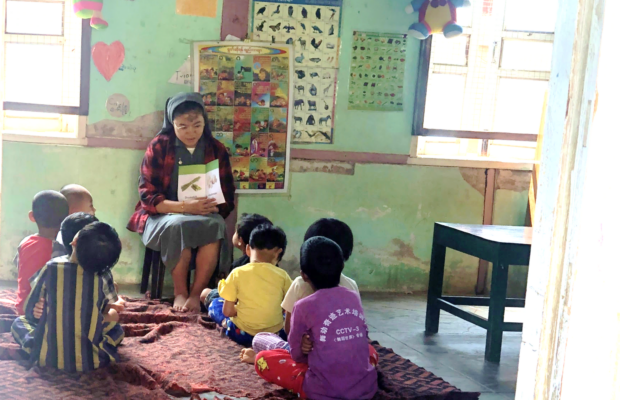
Early childhood education
Early childhood, a key stage
Since 1958, we have been working in the field with those most in need, and our experience has taught us that early childhood is a key stage in shaping every child’s personality. It ensures a healthy, holistic development.
These observations are backed up by most of the recent neuroscience studies. For example, research by Dr. Jack P. Shonkoff of Harvard University, highlights how important protection and basic needs, such as nutrition, hygiene, and health, are for brain development in young children (Shonkoff, 2012).
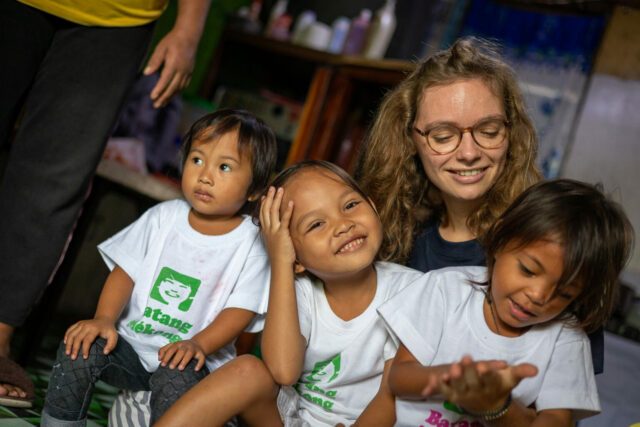
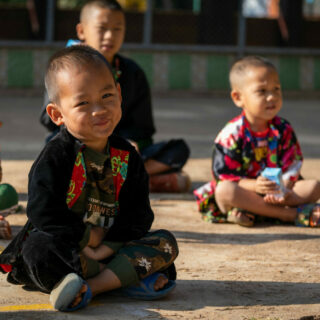
In order to develop safely, a child needs:
- Protection and basic needs (nutrition, hygiene, health): Studies such as that of Grantham-McGregor (2007) show that providing proper nutrition is crucial for cognitive development. A lack of nutrition in the early years can have long-term effects on learning and behaviour.
- Love and attention both from parents and carers: Bowlby’s research on attachment (Bowlby, 1969) suggests that secure and loving interactions with carers are fundamental to a child’s emotional and social well-being.
- Stimulation from playing and expressing oneself, as well as psychomotor and psychological development: Vygotsky (1978) highlighted the importance of social and linguistic stimulation when it comes to cognitive development. Games and language-based interactions stimulate the growth of cognitive skills and help regulate emotions.
In the programmes funded by Children of Mekong, we have identified a number of serious deficiencies in children’s development. To ensure full and healthy development, it is essential to address these challenges and work towards resolving them.

SOME OF OUR OBSERVATIONS
- Insufficient stimulus and screen addiction: We observe a lack of intellectual and emotional stimulation in children, which is often worsened by a strong addiction to screens from an early age. This lack of adequate stimulation can hinder cognitive and social development.
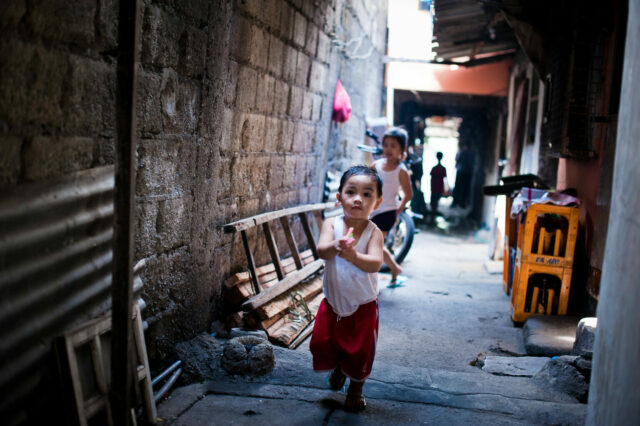
- Child trafficking and prostitution: There are extreme but growing cases of child trafficking, prostitution and cyberprostitution. These traumatising abuses have a severe and lasting impact on children’s mental and physical health.
- Malnutrition: Lack of adequate nutrition is a major problem, affecting children’s brain development and leading to stunted growth. Ensuring adequate nutritional intake is crucial to a child’s overall development.
- Insecurity: When children wander the streets, they are exposed to a number of dangers and they are deprived of a stable and secure environment, which is essential to their development.
- Lack of attention and domestic violence: parental lack of attention, together with domestic violence and limited commitment shown by fathers, all contribute to an unstable family environment, which affects children’s emotional and social development.
- Child labour and lack of education: Many children have no other choice but to help their parents work in the fields or sell in the slums. This deprives them of education and limits their prospects in later life.
OUR EARLY CHILDHOOD PROJECTS:
In light of these critical challenges, Children of the Mekong is actively committed to improving the lives of children facing precarious living conditions. Our work is structured around several strategic areas. Each one focuses on a crucial aspect of children’s development and well-being:
- Support of local structures: We believe in the importance of local expertise. Our managers in the field, who are deeply rooted in their communities, can identify and respond effectively to children’s specific needs, providing them with regular, personalised attention.
- Responding to Basic Needs and Specific Cases: We give priority to basic needs – nutrition, clothing, hygiene – while paying particular attention to children in highly vulnerable situations, such as those who are ill or victims of violence.
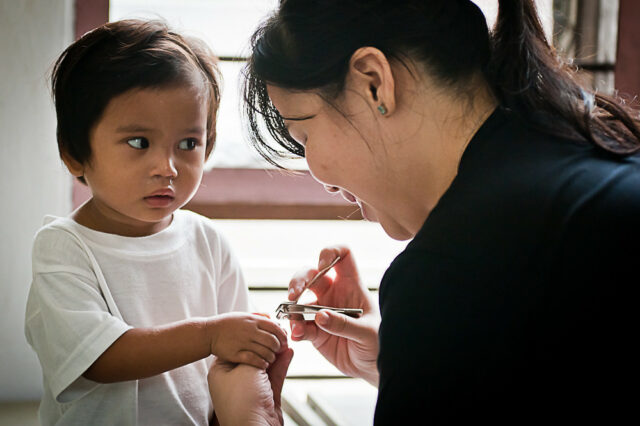
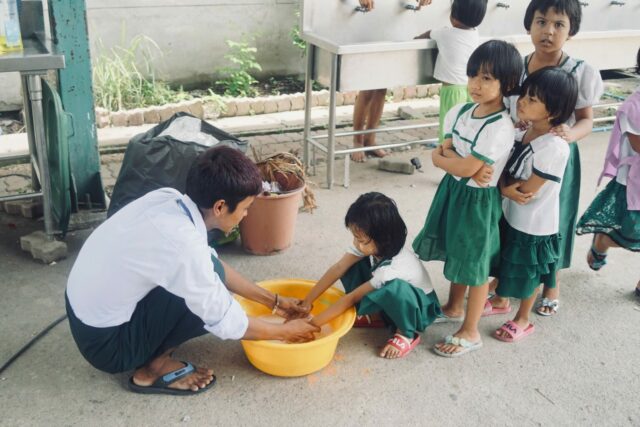
- Parental support: As we strongly acknowledge the central role played by parents in a child’s development, we are committed to supporting, reassuring and training them. We help them understand how crucial love and emotional support are in raising their children.
- Stimulation through Innovative Educational Methods: Children are awakened and stimulated through games and activities based on modern, proven educational approaches, such as Montessori and Steiner-Waldorf, thereby fostering a balanced development.
- Sharing expertise: Thanks to our volunteers and the future Bamboo application, we strongly encourage the sharing of knowledge and experience across our facilities. This sharing helps to enrich our programmes and strengthen the quality of our work.
SPONSORING A PROJECT:

